For a trio of doctoral students at UC Irvine, work, pharmacology and research is all in the family
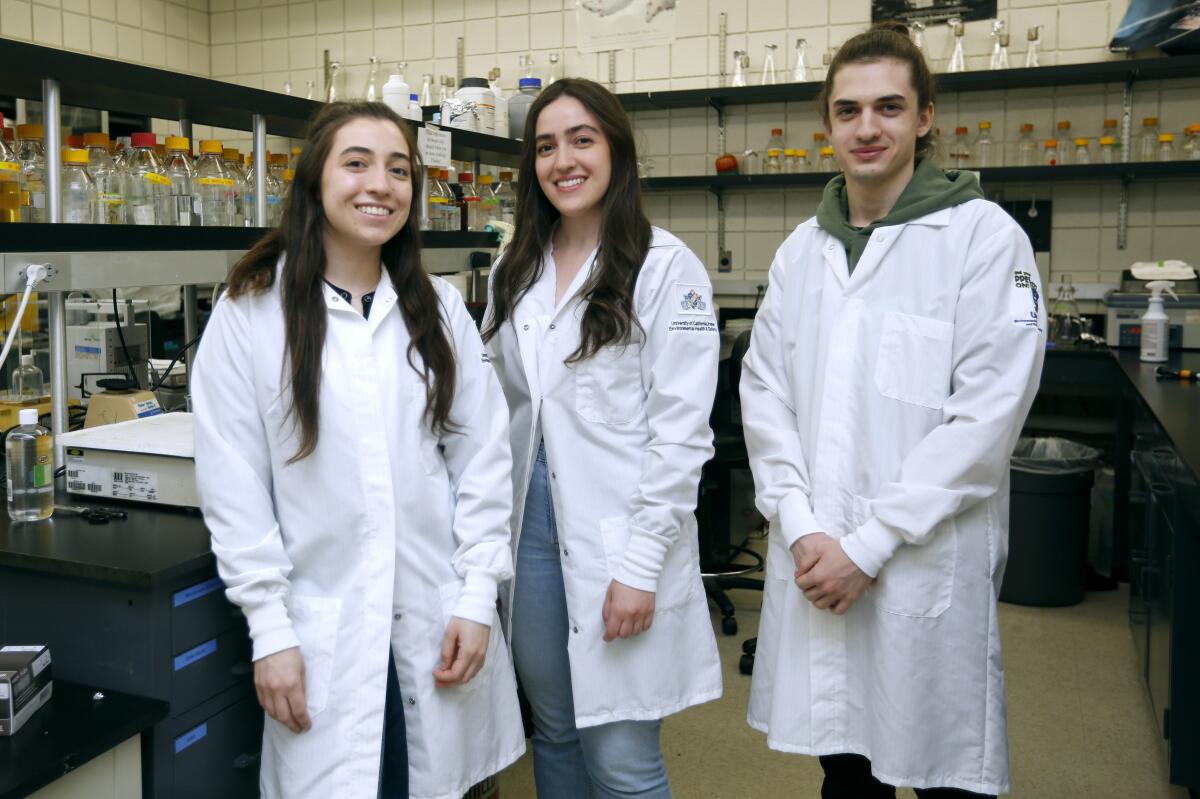
- Share via
Siblings that work, study and live together are siblings that stay together — at least, that’s the case for the three youngest of eight children in the Alhassen family.
Around UC Irvine, Lamees, 26, Wedad, 25, and Sammy Alhassen, 23, are known as the “three siblings,” and they not only share an on-campus apartment but also an interest in pharmacology, the subject of each students’ doctorate.
“We come from a really big family. We are a total of eight, and for my dad, education has always been really, really important for him and that’s kind of the reason why, for us, we moved onto wanting to do a PhD,” Lamees said. “All of us are about a year apart from each other, so that’s kind of the reason why we all ended up going to the same high school, middle school, kind of the same thing with college.”
Their five older siblings have careers in engineering — environmental, civil, structural and aerospace — and architecture.
Lamees, Wedad and Sammy took general education classes in tandem with their high school courses ahead of their undergraduate degrees, and Wedad said that the three worked together until Lamees graduated.
“For us, it became almost like we have our own study partners,” Wedad said.
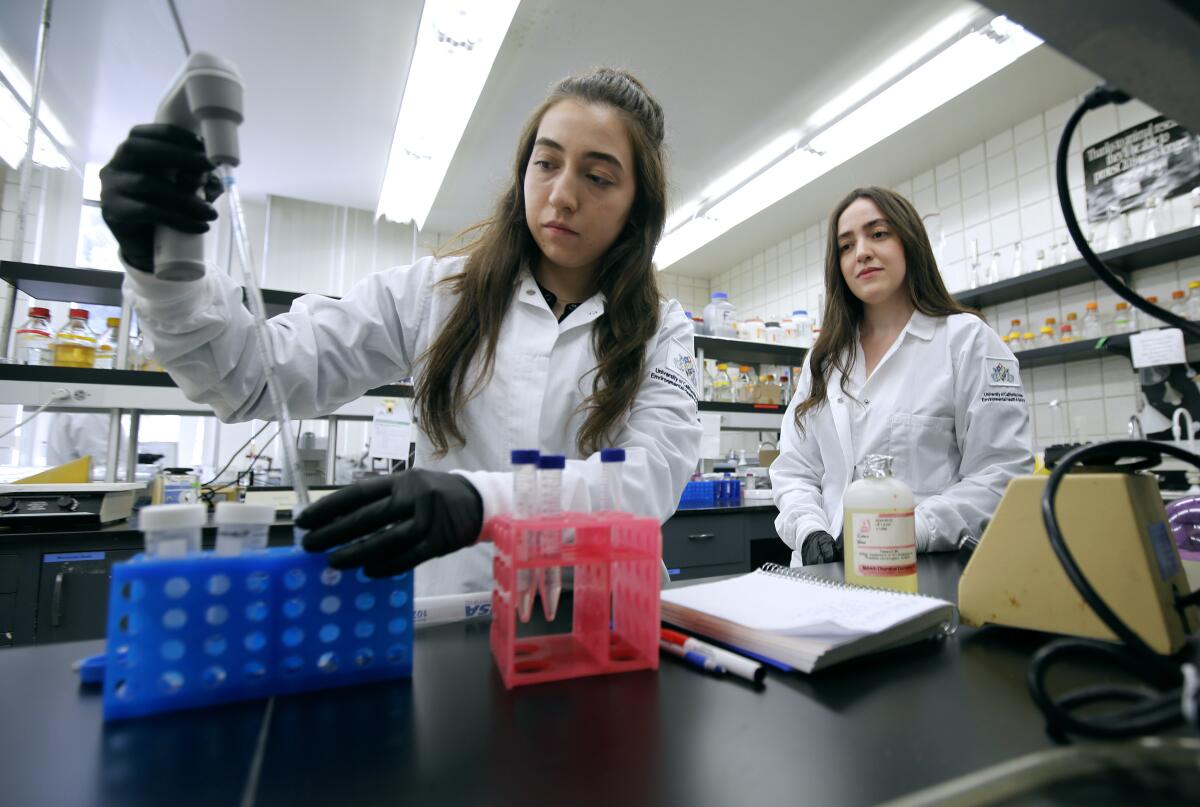
All three of the siblings received their bachelor’s degrees early at UC Riverside but completed their master’s degrees at UC Irvine, UC Riverside and UC Berkeley. Lamees, the oldest of the three siblings, said she had initially gone into biomedical engineering because she had wanted to go to medical school.
But she decided to take a year off following her undergraduate work to pursue research, which she now felt was her true passion. She met Amal Alachkar, an associate professor in pharmaceutical sciences, and Olivier Civelli, the Eric L. and Lila D. Nelson Chair in Neuropharmacology at UC Irvine.
Three times a week, we’ll bring you the latest on Orange County from Orange County, with the best of all the journalism from the Daily Pilot, the Los Angeles Times and TimesOC.
The trio now works at the laboratory together but are pursuing different research topics as their doctorate projects.
Wedad said she had initially wanted to pursue architecture because of her father, Tarif Alhassen, but changed her mind in high school. She said she always wanted to do something in science and help others and went into biomedical engineering because she was interested in the classes Lamees was taking. The two are 11 months apart.
Wedad said she saw herself teaching and researching but didn’t want to be hands-on with patients.
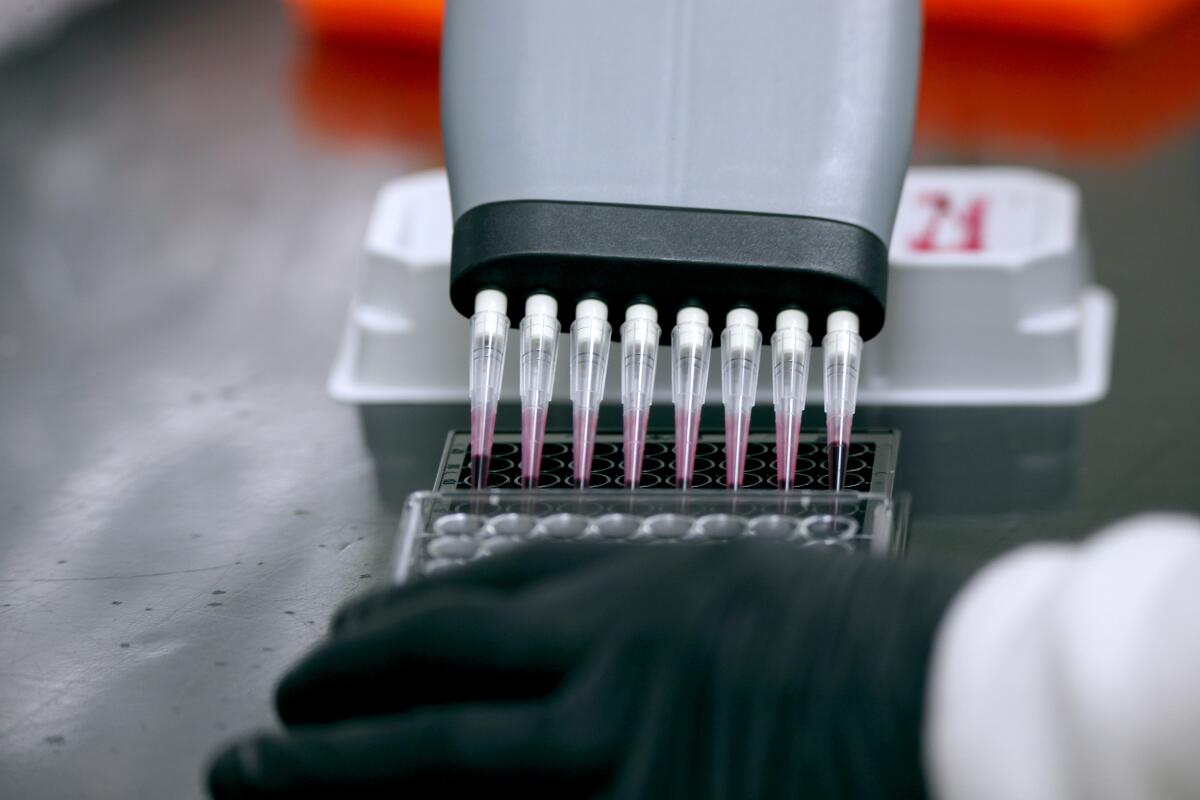
She and Sammy ended up helping Lamees and other researchers.
“For me, I’d always had my mind set on bioengineering, but after I was working in that lab and I started to work on more projects,” Wedad said. “You can bridge the gap between bioengineering and pharmacology, and for me it was more so, ‘I want to do both of those at the same time with my research.‘”
Sammy said all three of them had the same start, but he had been debating between civil and mechanical engineering. He knew he wanted to do math and felt he was good at it, but he was also interested in biology and science. He followed his sisters’ path because he felt both of his interests came together in biomedical engineering.
“Usually when we come home, sometimes we don’t [talk about research], but sometimes, I’ll be like, ‘Lamees, can we talk about this, this and this?’ and she’s like, ‘Wedad. I’m at home. Let’s relax. Let’s not bring research home.’”
— Wedad Alhassen
Lamees said she is studying the extract of a plant called Corydalis yanhusuo, which she said could be used in conjunction with pain medications such as opioids to lessen the likelihood of dependence.
Wedad said she is mapping brain circuits to see how they relate to schizophrenia with the hope that new therapeutics could be developed for treatment.
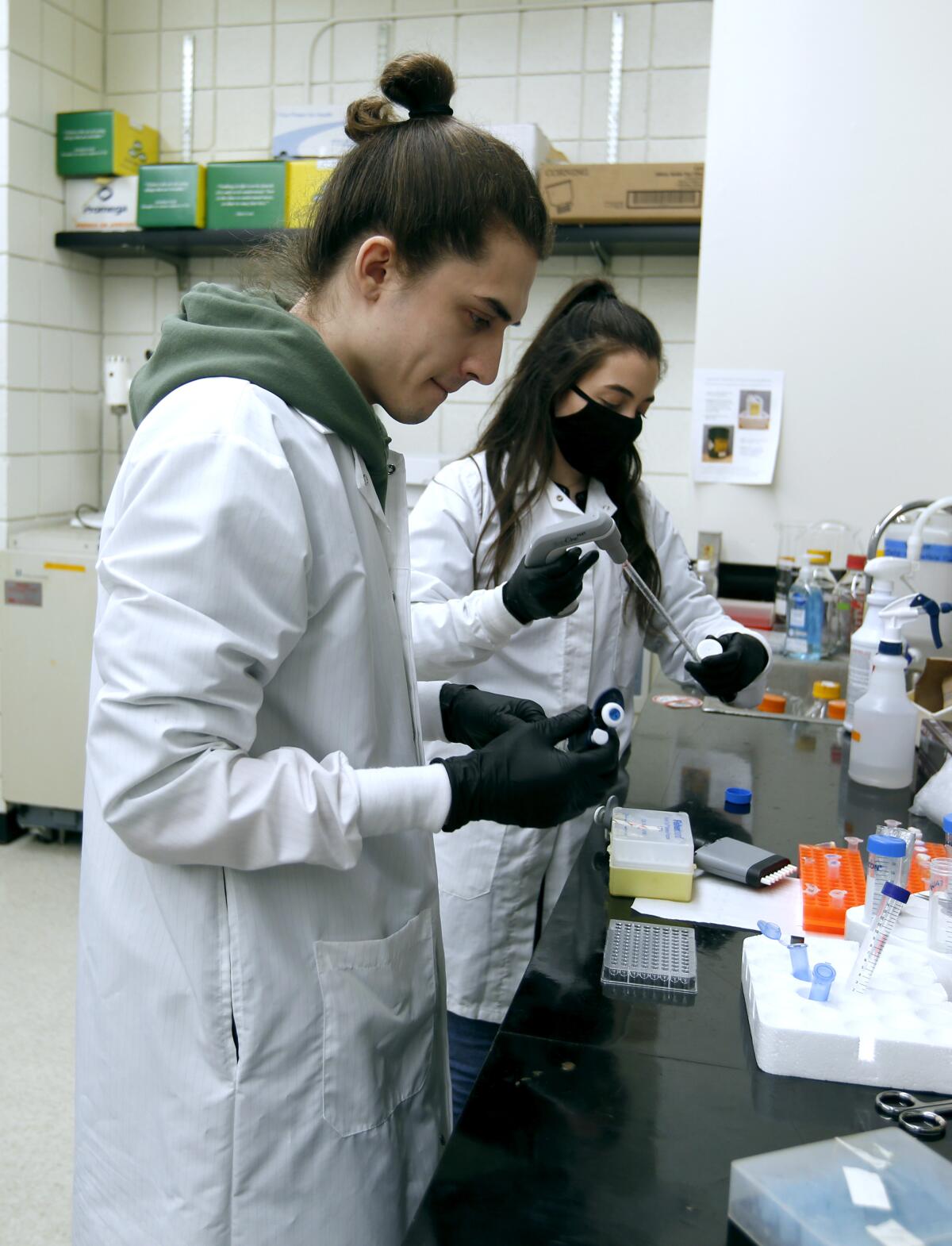
Sammy said he is working on projects involving mental and movement disorders that could provide a new understanding of certain chemicals in the human body. His main focus is pursuing treatments and a possible cure for Parkinson’s disease.
The three live together and try to avoid talking about their research at home. That isn’t always successful.
Lamees said that though all three projects are different, they use similar techniques. She tries to stress they keep work and home separate, but that has become more difficult with the pandemic, which shut down their lab for a month in March.
“When we’re in lab, I feel like we talk a lot about research and say like, ‘Hey, this is what I’m doing. These are the issues I’m having. What do you think?’” Wedad said.
“Usually when we come home, sometimes we don’t [talk about research], but sometimes, I’ll be like, ‘Lamees, can we talk about this, this and this?’” Wedad said, laughing, “and she’s like, ‘Wedad. I’m at home. Let’s relax. Let’s not bring research home.’”
“Lab work ends up being talked about at home, which I don’t mind, but for the most part, we like to keep it where we can come home, destress, relax and not have to worry about any problems we run into for research,” Lamees said, “but then again, we signed up for a PhD program, and we’re basically married [to] our projects, so that’s all we constantly think about.”
UC Irvine has partnered with health officials and advocacy groups to teach community members how to conduct contact tracing in the neighborhoods where they live and work.
The trio describes the Alhassen family as close, with Lamees and Wedad recalling memories of a large, shared backyard between their family and neighboring aunts and uncles in West Covina. Sammy said the family had moved by the time he was young, but he remembers doing homework and workbooks with his father. Tarif Alhassen still lives in West Covina.
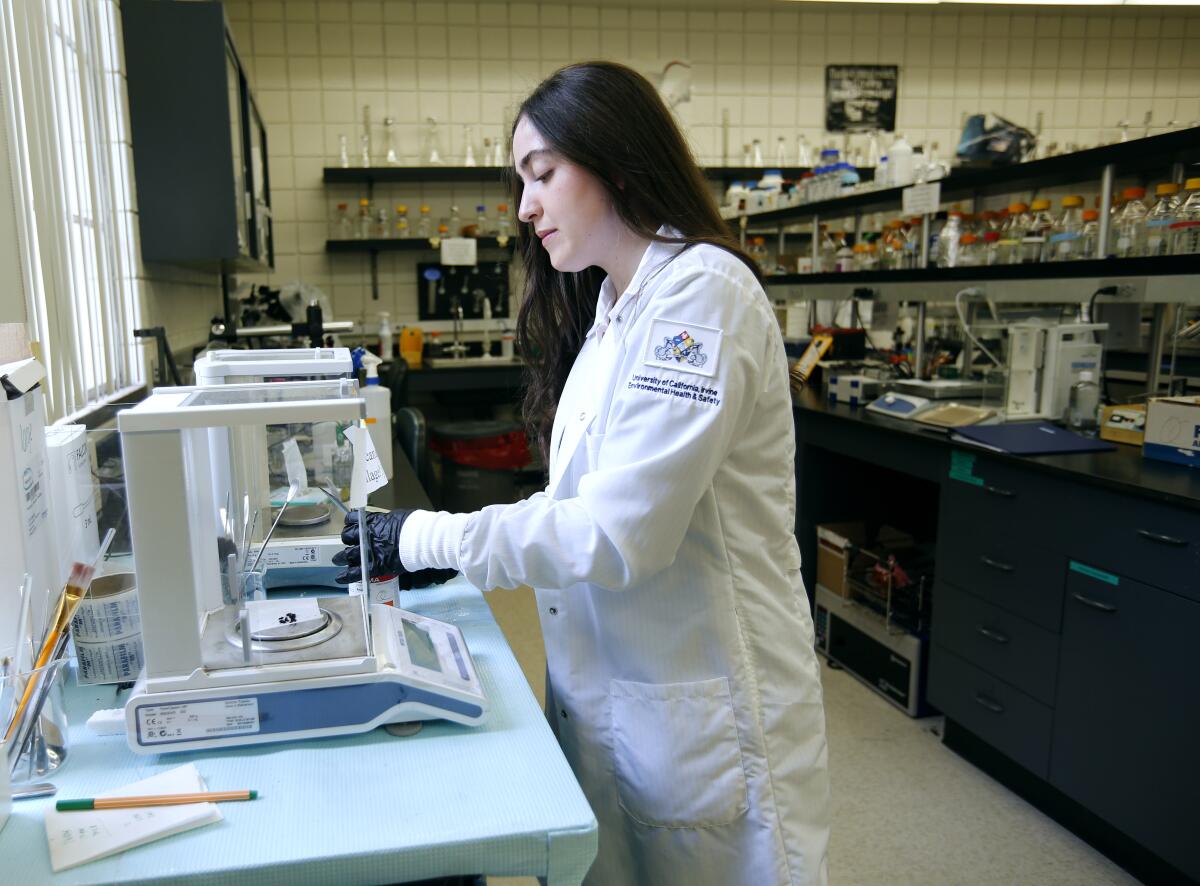
Wedad said she remembers the workbooks, which would come during the summers. They would have to finish their activities for the day before they could go play.
“It was always that balance between, ‘Your education is very important, that’s something that nobody can take away from you, so focus on that,’ and then you can also have fun whenever else,” Wedad said. “I think that’s one thing that has always been instilled in us. It’s all fun, but education is very, very important.”
“‘You need to establish yourself,’ because the one thing our dad wants to leave us with is not a bunch of money, not a bunch of whatever,” Wedad said. “He wants to leave with education and be able to go and be independent, find our job, make our own money and be able to live off of that. He never wanted to hand anything to us.”
Lamees said she felt her older siblings followed in the footsteps of their father, an architect, while she, Wedad and Sammy leaned more towards biology.
“It’s always been the young three who always wanted to stick together and work together and kind of build something out of nothing,” Wedad said. “For [our family], I think they’re more so just proud [of us]. I don’t think they think anything of it. We’re all really, really close. In the end, I think that they love that we’re together. They don’t have to worry because we can take care of each other.”
All the latest on Orange County from Orange County.
Get our free TimesOC newsletter.
You may occasionally receive promotional content from the Daily Pilot.





